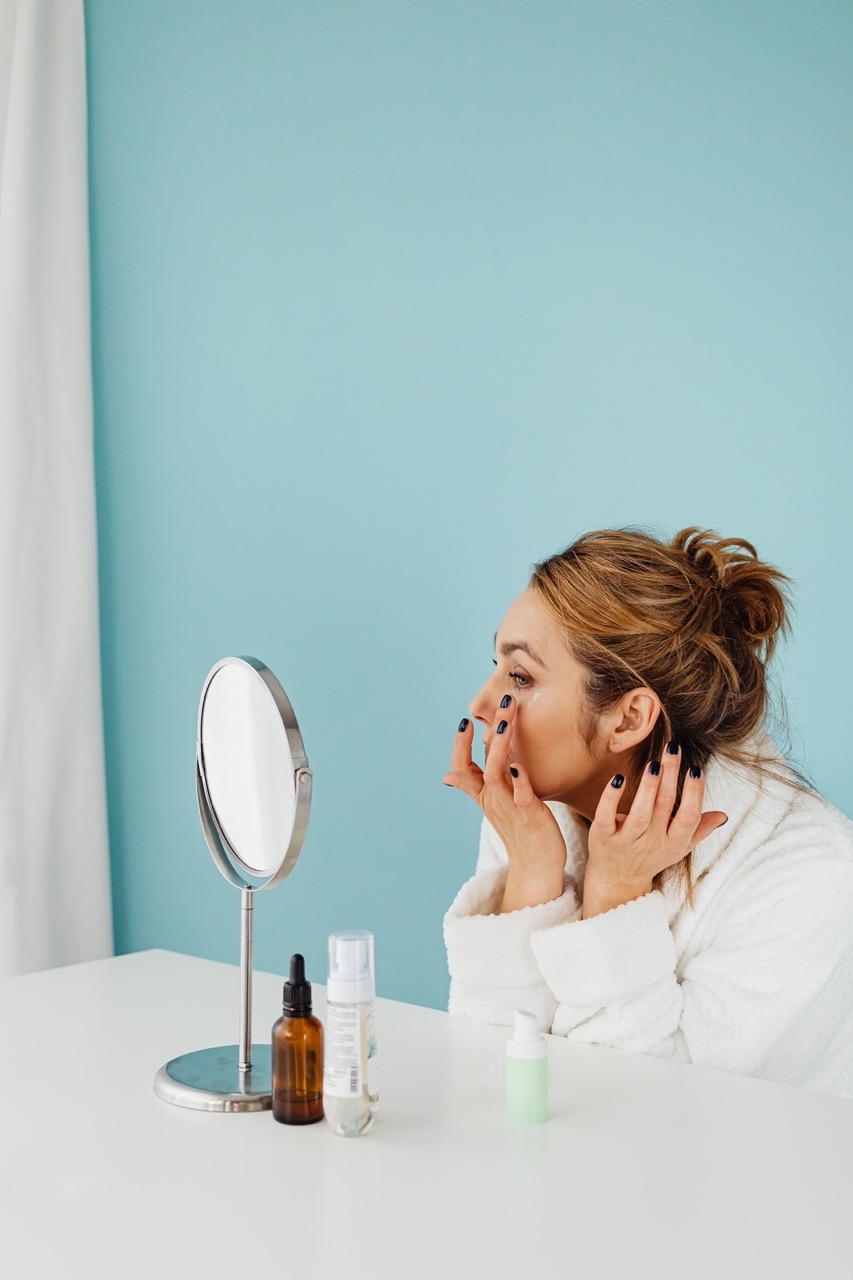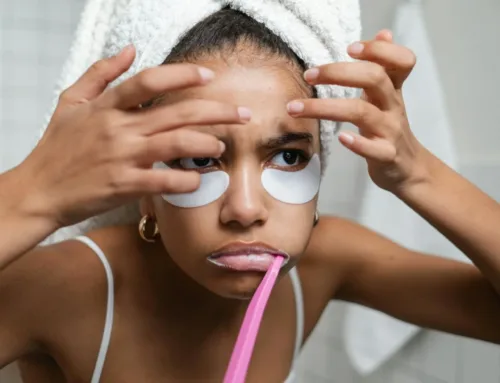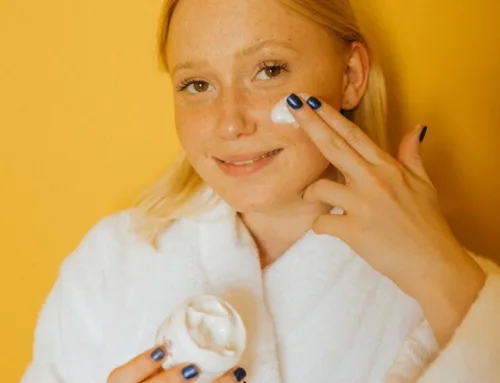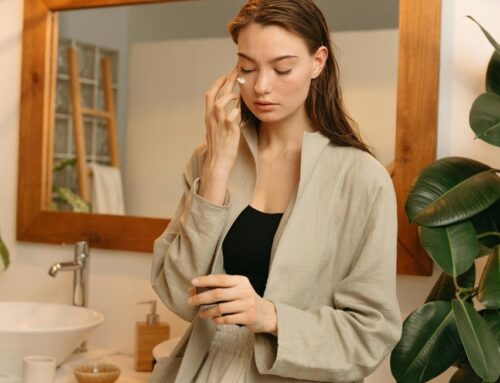I. Introduction.
Aging is a natural and inevitable part of life. It’s a complex process that involves various biological and environmental factors and influences every aspect of our being, from our skin and bodies to our cognitive functions and overall health. Yet, as much as we accept aging as an inevitable truth, many of us harbor a yearning to preserve our youthful vibrancy as long as possible.
This desire is not only about vanity and external appearance; it’s about longevity, vitality, and enjoying a high quality of life even in our advanced years. It’s about aging gracefully, with our health and faculties intact, allowing us to experience life in its fullness and continue to contribute meaningfully to our communities.
So, is there a secret to youth that we can unlock? This article delves into this intriguing question, presenting you with top anti-aging self-care practices that you can embrace to help slow the aging process and maintain your youthfulness. As we delve into the world of anti-aging, we will discover that the “secrets” are perhaps not so secret after all, but rather are rooted in basic principles of self-care that promote overall health and wellbeing. These practices revolve around balanced nutrition, physical activity, adequate sleep, mental health, and proper skincare.
Let’s embark on this journey of self-discovery and self-care, where we explore various aspects of our lifestyles and how we can tweak them to our advantage, encouraging a slower, healthier aging process, and promoting a longer, more vibrant life.
Stay with us as we unlock the secrets of youth together.
II. Understanding the Aging Process
Before we explore the anti-aging practices, it’s crucial to understand the aging process itself. Aging is characterized by a progressive loss of physiological integrity, leading to impaired function and increased vulnerability to death. This deterioration is the primary risk factor for major human pathologies, including cancer, diabetes, cardiovascular disorders, and neurodegenerative diseases.
There are several theories about why we age, but most agree that aging is caused by a combination of genetics, environmental factors, and lifestyle choices. For example, our genes may predispose us to certain age-related diseases, but our environment and lifestyle – such as where and how we live, what we eat, and how much we exercise – can also significantly influence these outcomes.
A key component of aging is oxidative stress, a process caused by an imbalance between free radicals (molecules with unpaired electrons) and antioxidants in your body. Free radicals can cause damage to cells, proteins, and DNA, leading to aging and disease. Similarly, chronic inflammation is another critical factor in the aging process, as it can lead to cellular senescence and the release of pro-inflammatory substances that further promote aging.
Understanding these aspects of aging forms the foundation for any successful anti-aging strategy, guiding us toward practices that can counteract these processes and promote health and longevity.
III. Anti-Aging Nutrition
Our diet plays an enormous role in our overall health and the aging process. What we consume can either fuel our bodies with nutrient-rich foods that help combat the adverse effects of aging, or it can overload us with substances that accelerate the aging process. Let’s explore how we can use nutrition as a powerful anti-aging tool.
Balanced nutrition is the cornerstone of a healthy life. Consuming a diet rich in fruits, vegetables, whole grains, lean proteins, and healthy fats can provide the necessary vitamins, minerals, and other nutrients that our bodies need to function optimally.
Antioxidants are a particular group of nutrients known for their anti-aging properties. They neutralize harmful free radicals in our bodies, combating oxidative stress, one of the main drivers of the aging process. Foods rich in antioxidants include blueberries, strawberries, artichokes, kale, and beans, to name a few.
Omega-3 fatty acids, found in fatty fish like salmon, walnuts, and flaxseeds, are also known for their anti-aging benefits. They reduce inflammation, support brain health, and may even delay cellular aging.
Essential vitamins for combating aging include vitamin A, which supports skin health, vitamin C, known for its antioxidant properties and its role in collagen synthesis, vitamin E, another powerful antioxidant that protects cells from damage, and vitamin D, which supports bone health and the immune system.
Remember, a balanced diet is about variety, moderation, and eating in harmony with your body’s needs. There’s no single “superfood” that will halt aging, but a well-rounded, nutrient-dense diet can significantly support your overall health and longevity.
IV. Physical Activity and Anti-Aging
Physical activity is another powerful tool in our anti-aging arsenal. Regular exercise helps maintain a healthy body weight, strengthens muscles, boosts the cardiovascular system, and enhances cognitive function. It also promotes the production of antioxidants in the body and boosts skin health by improving blood flow, helping us retain a youthful appearance.
Engaging in various types of exercise can maximize the anti-aging benefits. These include aerobic activities like jogging, swimming, or cycling, which enhance cardiovascular health and endurance; strength training, which combats age-related muscle loss; and flexibility and balance exercises, like yoga and Pilates, which improve joint health and prevent falls.
It’s important to find physical activities that you enjoy and can sustain in the long term. Also, always consider your current fitness level and any pre-existing health conditions when choosing your exercise regimen, and don’t hesitate to seek professional advice if needed.
Remember, every step, every movement counts. Even activities like gardening, dancing, or walking a pet can contribute to your daily exercise needs.
V. Importance of Sleep for Anti-Aging
Sleep is a vital but often overlooked aspect of anti-aging. During sleep, our bodies repair, regenerate, and rejuvenate. Chronic sleep deprivation can lead to an array of health issues, including a weakened immune system, cognitive decline, increased stress levels, and even accelerated skin aging.
Adults typically need 7 to 9 hours of sleep per night. However, it’s not just the quantity, but the quality of sleep that matters. Deep, restful sleep cycles are crucial for optimal health and well-being. Here are some tips for ensuring a good night’s sleep:
- Stick to a regular sleep schedule, even on weekends.
- Create a restful environment that’s dark, quiet, and at a comfortable temperature.
- Avoid stimulating activities and electronic devices close to bedtime.
- Exercise regularly, but try to finish workouts at least a few hours before bedtime.
- Be mindful of your food and drink intake. Avoid large meals, caffeine, and alcohol close to bedtime.
Taking care of your sleep health will not only help slow the aging process but also leave you feeling more energized and focused throughout the day.
VI. Mental Health and Mindfulness
Our mental and emotional well-being play a significant role in the aging process. Chronic stress, anxiety, and negative emotions can lead to inflammation, accelerate cellular aging, and even shorten our lifespan. On the other hand, positive mental health can improve our quality of life, enhance our resilience, and potentially slow down the aging process.
Mindfulness is a powerful practice that can enhance mental health and serve as an anti-aging tool. At its core, mindfulness is about being fully present and engaged in the current moment, without judgment or distraction. It promotes relaxation, reduces stress, improves cognitive function, and enhances overall well-being.
Mindfulness can be incorporated into your daily life in various ways. Meditation is one popular method. Even a few minutes each day spent in quiet, focused breathing can bring about significant benefits. Yoga is another practice that promotes mindfulness while also offering physical benefits.
Additionally, engaging in activities that you enjoy and that keep you fully immersed in the present moment can also foster mindfulness. This could be painting, playing a musical instrument, gardening, or any other activity that requires focus and brings you joy.
Remember that maintaining mental health is just as important as caring for physical health. Don’t hesitate to seek professional help if you’re struggling with stress, anxiety, depression, or other mental health issues.
VII. Skincare Practices for Anti-Aging
While our skin is bound to show signs of aging over time, certain skincare practices can help keep our skin healthy and slow down the aging process. Healthy skin is not just about appearance, but also about protection, as our skin serves as a critical barrier against environmental threats.
Regular cleansing is the foundation of any skincare routine, removing dirt, oil, and pollutants that can accelerate skin aging. Choose a gentle, pH-balanced cleanser that won’t strip your skin of its natural oils.
Exfoliation can help remove dead skin cells and promote cell renewal, but it should be done gently and not more than 1-2 times a week, depending on your skin type and sensitivity. Over-exfoliation can damage the skin barrier and accelerate aging.
Moisturizing helps maintain the skin’s barrier function and keeps the skin plump and hydrated, reducing the appearance of fine lines and wrinkles. Consider using moisturizers with ingredients like hyaluronic acid, ceramides, or peptides, which can help retain moisture and improve skin texture and firmness.
Sun protection is arguably the most critical anti-aging skincare practice. UV radiation is a major cause of premature skin aging, not to mention skin cancer. Regular use of a broad-spectrum sunscreen, wearing protective clothing, and seeking shade can protect your skin from harmful UV rays.
VIII. Conclusion
The quest for youth and longevity is a journey that each one of us embarks upon. The secrets we’ve discussed here—balanced nutrition, regular physical activity, sufficient sleep, mental health practices, and conscientious skincare—are by no means exhaustive, but they are fundamental aspects of self-care that can significantly influence how we age.
Remember, the goal isn’t to stop aging—it’s a natural, beautiful process—but to age healthily and gracefully. It’s about embracing the passing years with vitality and vigor, with a mind that’s sharp and a body that’s active and robust.
Take control of your aging process, celebrate each day, and remember that every step you take towards a healthier lifestyle is a step towards unlocking the secrets of youth. Let your journey be one of joy, discovery, and an ever-deepening appreciation for the wonder of life.




